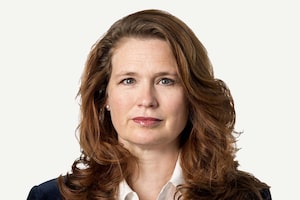Good morning. Wendy Cox in Victoria today.
The B.C. NDP government delivered its third provincial budget Tuesday that marked a significant step in the government’s move toward transferring wealth from British Columbia’s highest income earners to those with less.
With provincial revenues from natural resources continuing to decline and with the cash cow that was once property taxes cooling, the province moved Tuesday to inject extra revenue into its coffers by introducing a new tax bracket on taxable income exceeding $220,000, starting Jan. 1, 2020. The rate for those earners will boost from 16.8 per cent to 20.5 per cent, which finance ministry officials said is in line with Quebec and Ontario’s tax brackets. It’s the second boost in two years: In 2018, the rate was 14.8 per cent.
The move, which is estimated to bring in an extra $216-million for this coming fiscal year, represents almost half of the boost in tax revenue that the government expects to raise.
Meanwhile, the government announced it has reconfigured existing education and child-care supports, clawing them back to distribute to those of lesser means.
As B.C. Legislature correspondent Justine Hunter reports, the BC Child Opportunity Benefit begins this year, replacing an existing benefit that provided tax-free payments to families with a net income of $114,000 or less, for each child under 6. The new program offers higher benefits for more children – up to $1,600 annually for children up to 17 – but the income threshold has been reduced to families earning $80,000 or less.
The system for postsecondary student grants is also being overhauled.
The existing student grants are provided based on completion of postsecondary programs, but are not means-tested. About 21,000 students are able to reclaim a portion of their fees. Roughly one-quarter of those students are attending programs at private institutions.
Under the new B.C. Access Grant, eligibility will be determined by financial need and private postsecondary programs will not be covered, but more publicly-funded postsecondary programs will qualify. An estimated 40,000 students are expected to be able to access the grants, which will now be paid up front.
One other tax measure takes aims at drinking habits of teens: The provincial sales tax will now apply to sweetened carbonated beverages. Finance Minister Carole James said the 7-per-cent tax on pop is a well-being initiative that has been recommended by public health advocates.
The budget is balanced, with a small surplus projected of $227-million. But as columnist Gary Mason points out, the accumulated debt is ballooning. It is forecast to rise to nearly $6-billion from the current fiscal year to the next – $70.6-billion to $76.3-billion and topping out at $87.5-billion in 2022-23. It means the debt-to-GDP ratio will increase to 17.1 per cent in 2022-23 from the current rate of 14.6 per cent.
That’s largely because of infrastructure spending and James points out that it’s unlikely to knock B.C.’s Triple-A credit rating off its pedestal in the country.
Mason points out that although this budget didn’t include much in the way of new program spending, that infrastructure plan will pay out huge political benefits in the months before the scheduled October, 2021.
“Over the next three years, there are plans to spend $6.4 billion in major construction projects around the province. You can almost see the giant road signs going up now, drawing attention to all the wonderful things the NDP government is doing,” Mason writes.
The spending is on new bridges and subways, schools, hospitals and affordable housing.
Still, there’s a long way to go before then and there are some warning signs on the horizon.
Revenue in the natural resources sector are off. This time last year, the provincial government predicted revenue from forestry, natural gas royalties and other natural resources would be $2.6-billion for 2019-20. Instead, it’s coming in at $2.3-billion and revenue is now expected to drop this coming year and then essentially flatline over the next two.
The Business Council of B.C. noted that the growth projection of 2 per cent “looks decent” but added “it is not a stellar performance judged by historical standards."
Real GDP growth in B.C. rose at the slowest rate since the 2009 recession, the business council noted, “marking a shift in B.C.’s growth dynamics.”
And the government will be facing a looming battle with teachers. There is no new money allocated for teacher salaries beyond the 2-per-cent increases in each of the next three years that the government has said is the mandate.
“Two two and two is the mandate and it will continue to be the mandate,” James said firmly.
BC Teachers Federation president Teri Mooring was unimpressed. The teachers are in mediation with their employer.
This is the weekly Western Canada newsletter written by B.C. Editor Wendy Cox and Alberta Bureau Chief James Keller. If you’re reading this on the web, or it was forwarded to you from someone else, you can sign up for it and all Globe newsletters here. This is a new project and we’ll be experimenting as we go, so let us know what you think.
Around the West
COASTAL GASLINK: Prime Minister Justin Trudeau is warning against the use of force to end the rail blockades and protests linked to the Coastal GasLink pipeline in northern B.C. Trudeau has been under increasing pressure to end the blockades, which have shut down much of the country’s rail network. The Prime Minister says those who want the government to act with haste are ignoring the “complexities” of what’s happening. The Wet’suwet’en hereditary chiefs, whose opposition to the pipeline have fuelled the protests, have refused Trudeau’s request for a meeting.
COVID-19: British Columbia has identified its fifth presumptive positive case of the novel coronavirus COVID-19 as a woman in her 30s who developed symptoms after a trip to Shanghai, China. Health officials are now investigating her travel patterns and whether other passengers on her flights need to be contacted. This marks Canada’s eighth case of the virus.
OIL SANDS: An Alberta judge has given the province 10 days to make a decision on whether to approve an oil sands project that has been stuck in regulatory limbo for 20 months. Prosper Petroleum Ltd. filed a legal challenge over the delays, which it argued were unreasonable and hurting its business. The province plans to appeal.
FORESTRY STRIKE: Forestry workers on Vancouver Island have voted to ratify a collective agreement, ending a strike that kept 3,000 workers off the job for eight months. The agreement passed with 93 per cent of the union members supporting it.
RESTORATIVE JUSTICE: In the summer of 2018, Destine Spiller posted photos of a vandalized car in Flin Flon, Man., and proposed a “shoot a Indian day” in retaliation. Instead of being charged criminally, she was referred to the Restorative Justice Centre, which organized mediation circles for Spiller and another woman involved in the posts. Spiller completed her final mediation circle on Thursday in The Pas, where she read an apology letter to elders and First Nations leaders.
PEST-CONTROL STARTUP: A Vancouver startup that uses wireless technology and a chemistry trick to prevent the spread of crop-damaging insects has secured one of the biggest financings in Canada’s clean-technology sector. SemiosBio Technologies Inc. raised $102-million in an equity deal led by Morningside Group, a private equity firm controlled by billionaire brothers Gerald and Ronnie Chan, heirs to a Hong Kong property fortune. Early investors also sold an undisclosed stake in a side deal.
BANFF’S BISON: Parks Canada reintroduced 16 bison to the Alberta park in 2017, more than 100 years after the species’ borderline extinction. The bison were initially kept in an enclosed pasture and were released to roam a 1,200-square-kilometre area of Banff’s backcountry the following year. This week, conservation officials announced that the herd had its first wild death ‘a really key milestone in the project.’
SASKATCHEWAN DERAILMENT: The Transportation Safety Board says its investigators have not found any mechanical defects on a train that derailed and spilled oil in rural Saskatchewan. The accident sent flames and thick black smoke into the air and spilled 1.2 million litres of crude oil.
Opinion:
The Globe and Mail Editorial Board on Alberta’s “war room”: “It is, in short, a political PR operation dressed up in journalist-face. It’s an agency of government, masquerading as an independent news organization. That is wrong.”
Justine Hunter on private seniors homes: ”For-profit care providers, who operate one-third of all the province’s long-term care beds, have negotiated wildly different terms, but there is one consistent theme: Taxpayers have assumed most of the risk for their ventures, the province’s seniors advocate Isobel Mackenzie found.”
Alexandra Gill on online restaurant reviews: “Readers who have followed me over the years will have figured this out. They might not always agree with me, but at least they know what to expect. Yelp? It’s far from clear how this little hole-in-the-wall was deemed the best place to eat in all of Canada.”
Melissa Stasiuk on how only Ontario provides IVF funding: “The constant cycle of needles and probes made me feel like some sort of human experiment. One that kept failing over and over again. But in many ways, I was lucky. The clinic was close to my home and work. I could fit the frequent visits into my workday. What do women in Alberta or Nova Scotia do? Are they forced to take a leave of absence from work? How many couples could actually swing that? Do they forgo treatment altogether, their dreams of starting a family crushed?”
Marsha Lederman on Rita McKeough’s Banff exhibit: “The multidisciplinary artist Rita McKeough is worried about the world – particularly the land, and plants and animals that rely on it. She has channelled her distress and considerable skills into a gallery-wide installation at the Banff Centre for Arts and Creativity, allowing us to walk through an unsettling human-made habitat. At the Walter Phillips Gallery, we encounter weeping roses, a burrow under siege, a triage centre for plants and finally, an angry earth fighting for its survival. Her exhibition, darkness is as deep as the darkness is, serves as an ingenious and inventive cry for help, voiced with hundreds of sculptural elements.”
Dan Clapson’s review of Calgary’s The Goose restaurant: “The issue with The Goose is that although it bills itself as a ‘neighbourhood hang out,’ it doesn’t quite feel that way. Sure, the idea of a neighbourhood hangout is up for interpretation, but there’s nothing particularly homey about this restaurant.”
Simon Dyer on Teck Frontier: “What we really need are tools, such as clear carbon budgets, to understand how individual projects fit into Canada’s long-term decarbonization pathways, and for the use of those tools to be mandatory in project decision-making.”
Adam Pankratz on the Coastal GasLink protesters: “They have conveniently and once again ignored two important facts: the rule of law is a two-way street, and many First Nations strongly support the projects that protesters are determined to stop.”
 Wendy Cox
Wendy Cox James Keller
James Keller